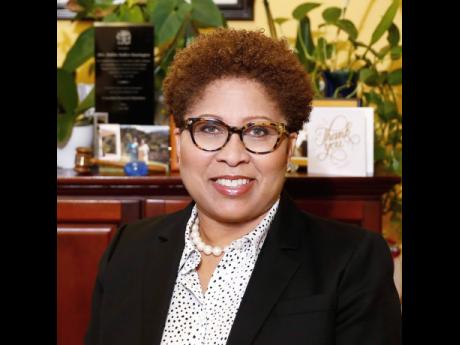Immigration Corner | Can my brother get back his visa?
Dear Mrs Walker-Huntington,
In February my father, brother and I went to the United States (US) Embassy to renew our visas. My father and I were successful, but my brother was not. He was denied on the basis that on two occasions, he stayed for five and four months respectively.
I read your article in The Gleaner on November 12, that if a person overstayed on a visitor’s visa for six months or less, they would face a mandatory three year bar from entering the US.
I know this is a stretch, but can he re-apply and expect a favourable result?
PB
Dear PB,
What the article actually said was that if anyone overstays their US visitor’s visa (non-immigrant status) by six months, they face a mandatory three-year bar to returning to America. If you overstay for a year or more the mandatory bar is 10 years. This bar applies to both immigrant and non-immigrant visa applicants and can be overcome by a waiver – in certain circumstances.
In your brother’s situation – like so many other people I encounter – a person is granted a visitor’s visa and when they arrive in America the Customs and Border Protection (CBP) gives them six months to stay in America. These six months are given for convenience to the tourist – in the event they need to stay longer than the two or three weeks they told the CBP officer they were coming to visit. It is not intended for the visitor to remain in the United States for an extended period – unless they are independently wealthy.
When the average person stays in America on a tourist visa for months at a time, the presumption is that the person was working illegally in America during their visit. The reality is that many people do this and the US authorities are aware of the practice. Unfortunately, it entangles people who are in America visiting a sick relative or themselves become ill during their visit. There are others who are in fact independently wealthy who do come to America and spend extended periods each year – some even own a second home in America where they reside during their visits. The difference here is that they are not working and can prove their financial ability to be in America.
The difficulty that someone like your brother has in obtaining another visa is that the US government views his case as having given him an opportunity with a non-immigrant visa and that he abused the privilege. If, however, he has a plausible, verifiable explanation for his extended visits, he can re-apply for the visa with a Non-Immigrant Waiver for consideration. Everyone has to remember that a non-immigrant US visa is a privilege and not a right and that the visa can be granted, denied or revoked at the pleasure of the US government.
Dahlia A. Walker-Huntington, Esq. is a Jamaican-American attorney who practises immigration law in the United States; and family, criminal and international law in Florida. She is a mediator and special magistrate in Broward County, Florida. info@walkerhuntington.com

